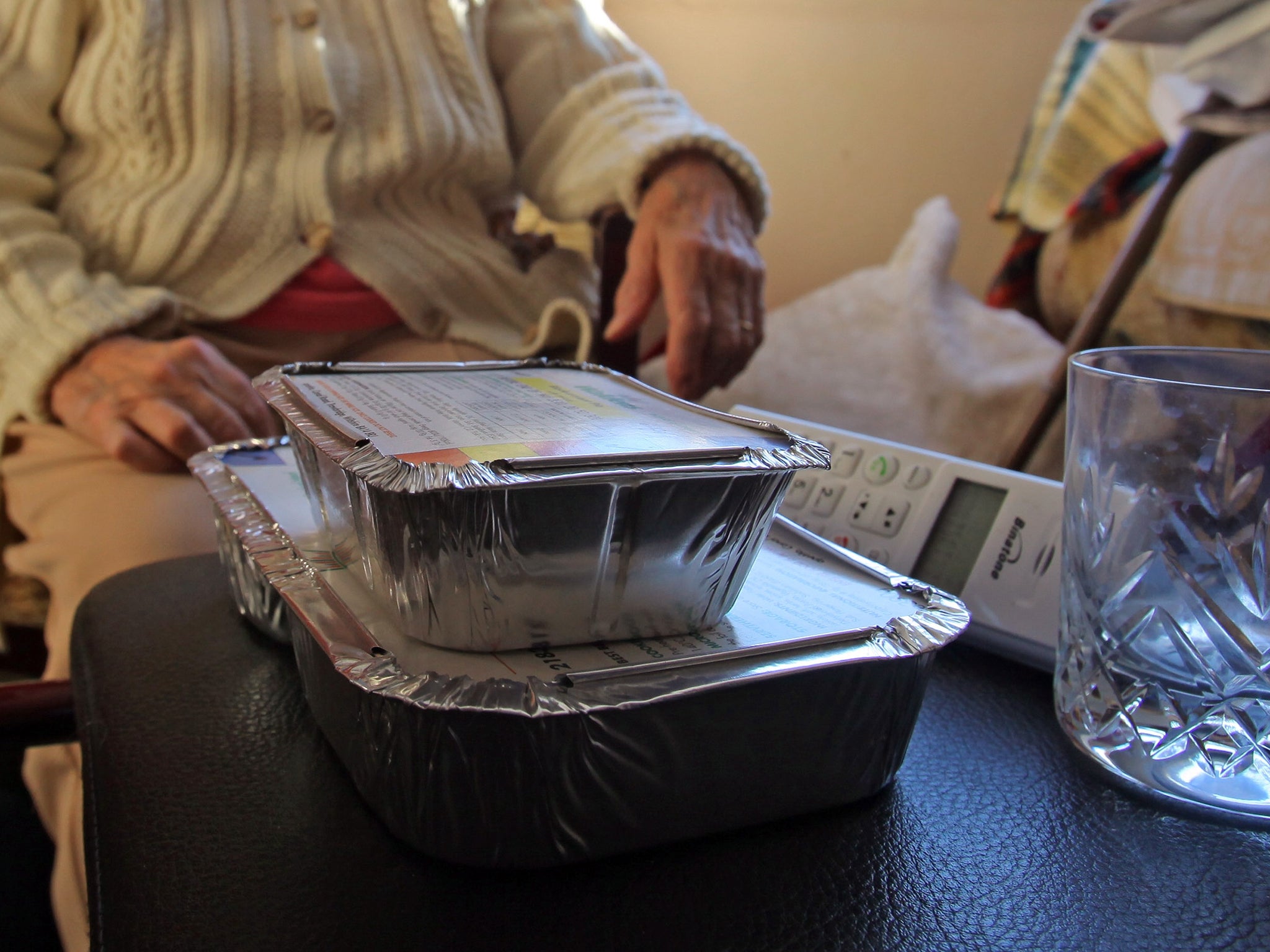Migrant workers needed to solve UK's 'crippling' shortage of care workers, report says
Study says social care sector 'faces a perfect storm' with a possible staff shortfall of one million by 2037

Your support helps us to tell the story
From reproductive rights to climate change to Big Tech, The Independent is on the ground when the story is developing. Whether it's investigating the financials of Elon Musk's pro-Trump PAC or producing our latest documentary, 'The A Word', which shines a light on the American women fighting for reproductive rights, we know how important it is to parse out the facts from the messaging.
At such a critical moment in US history, we need reporters on the ground. Your donation allows us to keep sending journalists to speak to both sides of the story.
The Independent is trusted by Americans across the entire political spectrum. And unlike many other quality news outlets, we choose not to lock Americans out of our reporting and analysis with paywalls. We believe quality journalism should be available to everyone, paid for by those who can afford it.
Your support makes all the difference.Britain should open its borders to low skilled migrants from around the world to address a shortfall of more than one million care workers by 2037, according to a new report released.
The adult social care sector “faces a perfect storm,” states the report by Independent Age and the International Longevity Centre-UK, citing “crippling budget cuts” and an ageing population.
Unless poorly paid care work is made more attractive to Britons and migrants are able to continue to work here, “the sector will become crippled by a lack of workers to meet demand,” it warns.
There could be a shortfall of up to 200,000 workers by the end of this Parliament, states the report, which looks at the care workforce in England.
And in less than a generation this shortage of staff will stand at more than a million, it says.
Almost one in five of all care workers are migrants – some 266,000 people - but the Government’s migration policy has “become increasingly restrictive to non-EU migrants, who make up the largest proportion of migrants working in the adult social care sector.”
Uncertain hours, low pay and stressful working conditions make care work unattractive for many, says the report. “In turn, migrants are attracted to the care sector for economic reasons,” it adds.
The Government needs to relax rules on migrant workers to allow low skilled workers from outside Europe to come to Britain “in order to help the sector meet immediate staffing needs.”
But this will not be enough on its own, says the report. More needs to be done to encourage Britons to work in the care sector, such as better funding, a ‘care-prentice’ scheme to encourage older people into care work, and a national campaign to attract more male care workers.
Migrant care workers
- One in five of the adult social care workforce was born outside the UK - 72 per cent of which are from outside the European Union.
- 191,000 of migrant care workers come from outside the EU.
- 150,000 of these workers are employed in care homes.
- 85 per cent of care workers who arrived in the UK between 1995 and 1999 were born outside Europe.
- Six in ten workers who came to Britain between 2007 and 2014 were born outside the EU.
The issue is not confined to England, commented Simon Bottery, director of policy, Independent Age: “We know that other parts of the UK are facing similar issues in terms of huge pressure on social care budgets and a rapidly ageing population.”
This comes just days after The Independent revealed how a funding crisis in social care could result in thousands of elderly people being forced into hospital beds by 2020, at a cost of billions to the NHS.
There is a growing need for the contribution of migrant workers, said Saira Grant, chief executive of the Joint Council for the Welfare of Immigrants. “A vital sector such as adult social care should not be threatened by this government’s increasingly harsh and arbitrary changes to the immigration rules,” she added.
In a statement, a Department of Health spokesperson said: “We have provided £3.2 billion in transfers from the NHS to social care to ease pressures and the National Living Wage will help attract workers to the sector.”
A Home Office spokesperson said: “In the past it has been too easy for some businesses to bring in workers from overseas rather than take the long-term decision to train our workforce here at home.
“We accept that care work requires certain skills and share concerns about a ‘continued failure to attract more UK born workers’.
“The care sector, like many industries, needs to reduce its dependency on migration and - as the economy continues to grow – employers must do more to recruit, train and retain British workers. That’s why we have asked the independent Migration Advisory Committee to provide advice on reducing economic migration from outside the EU.”
Join our commenting forum
Join thought-provoking conversations, follow other Independent readers and see their replies
Comments